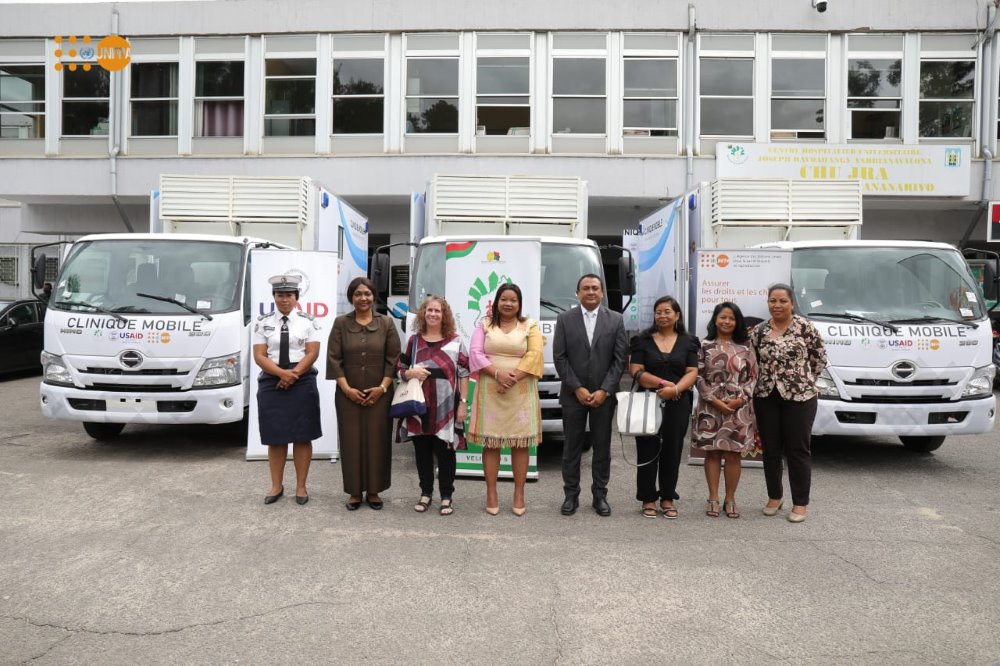United States Helps UNFPA to Scale Up Protection of Vulnerable Women in Southern Madagascar
ANTANANARIVO – The U.S. government, in partnership with the United Nations Population Fund (UNFPA) in Madagascar, is helping women in the country’s drought- and cyclone-affected South and Southeast access domestic and sexual abuse prevention and support services.
Through the Bureau for Humanitarian Assistance, the U.S. Agency for International Development (USAID) provided UNFPA with a $2 million grant covering twelve districts; each district has experienced repeated natural hazards that have destroyed agricultural production and limited sources of livelihood and access to basic health services. These dire conditions often lead to domestic abuse, child marriages, lack of access to family planning, and mothers taking drastic measures to feed their children.
Under the grant, UNFPA purchased three mobile clinics to prevent gender-based violence (GBV) and sexual exploitation and abuse (SEA). The mobile clinics serve over 100,000 people, including more than 2,500 people living with disabilities.

“In the face of these emergencies, gender-based violence and sexual exploitation and abuse remain a crucial concern for UNFPA, especially for women and girls rendered vulnerable and who are at higher risk of abuse,” said Miranda Tabifor, the Acting UNFPA Representative in Madagascar.
“The three mobile clinics will be deployed to far-off communities to provide timely and essential services to these populations in order to leave no one behind and ensure basic rights for all.”
The project will expand training for local authorities on SEA and GBV prevention. More than 19,000 people have already accessed these services, including family planning and referrals through which victims can learn their rights and access services providing protection from SEA and GBV. By the end of 2023, UNFPA expects to reach more than 170,000 of the 2.23 million people in areas
receiving humanitarian assistance.
"Deployment of these mobile clinics makes up a critical part of the response to drought-related emergencies for vulnerable women and adolescent girls in the South, and also builds community resilience,” USAID Mission Director Anne Williams said at the event.
The clinics serve as centralized repositories for supplies and information, offer locations where stakeholders coordinate their efforts in protection (such as health, legal, and community-based organisations) to complement and boost existing networks of services to those most-in need in hard-to-reach communities across the regions of Androy, Anosy, Atsimo Andrefana, Atsimo Atsinanana, Vatovavy, and Fitovinany.
Like “Mpirahalahy Mianala,” the United States stands with Madagascar to protect the country’s most vulnerable populations. Since 2015 the United States has provided more than $381 million in humanitarian and development assistance to Madagascar's South and Southeast, through partners like UNFPA.
For more information please contact:
▪ USAID Madagascar
Zack Taylor, Communications Advisor rztaylor@usaid.gov
Malala Ramarohetra, Communications Specialist mramarohetra@usaid.gov
▪ UNFPA Madagascar
Melvis Kimbi, Communication: kimbi@unfpa.org
Hanta Andremanisa, Communication : andremanisa@unfpa.org

